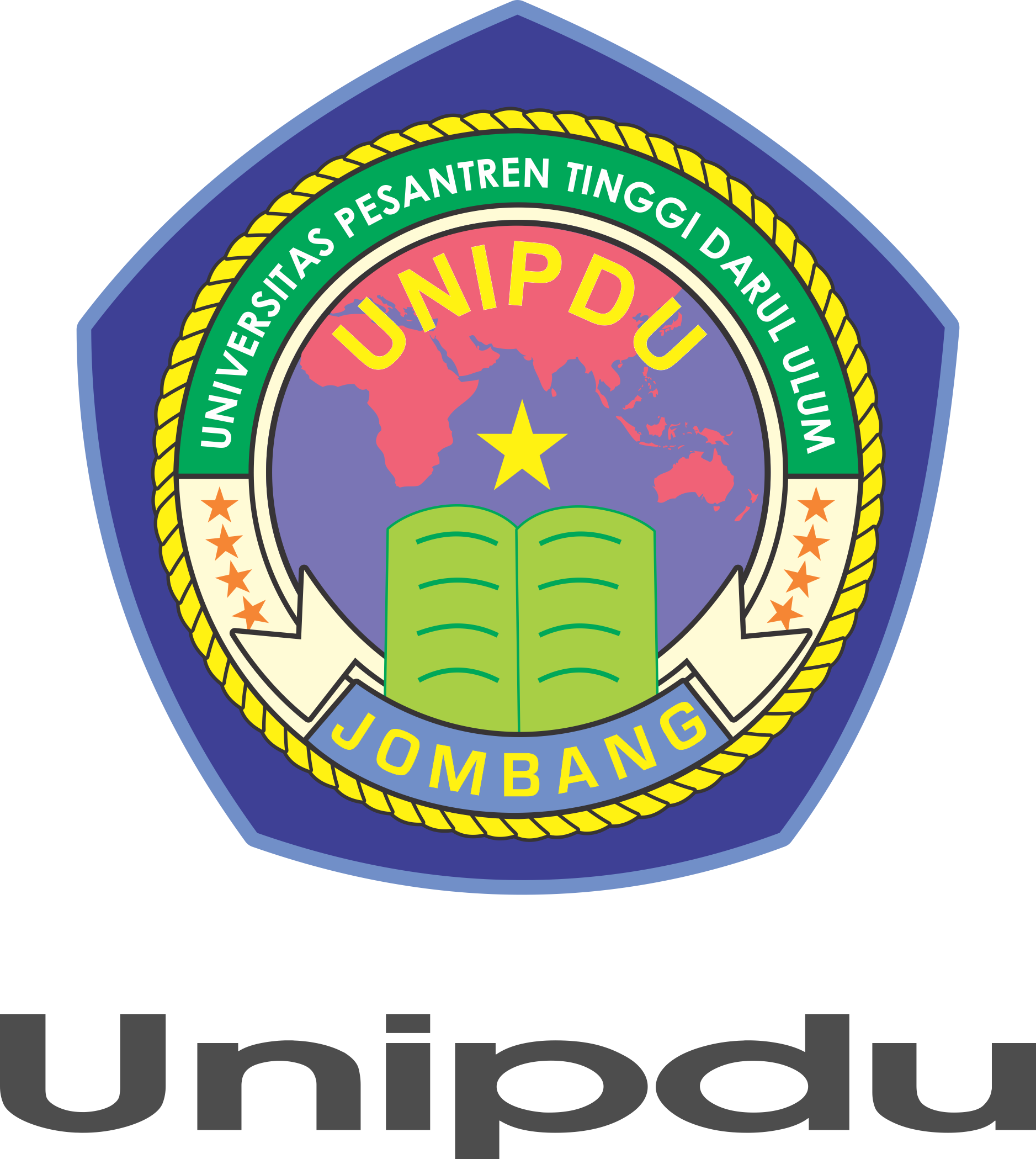Pantun Matematika: Media Untuk Mengembangkan Keterampilan Literasi Matematis Mahasiswa Melalui Service Learning
DOI:
https://doi.org/10.26594/jmpm.v6i1.2051Keywords:
Pantun Matematika, Keterampilan Literasi Matematis, Service LearningAbstract
Tujuan penelitian ini adalah untuk mendeskripsikan proses pengembangan pantun matematika guna mempertajam keterampilan literasi mahasiswa melalui service learning. Penelitian ini termasuk penelitian pengembangan dengan tujuh tahapan. Penelitian ini melibatkan dua mahasiswa pendidikan matematika dan 19 siswa SMP Ma’arif Surabaya. Data penelitian ini diperoleh melalui catatan lapangan, lembar validasi, dan angket. Hasil penelitian menunjukkan bahwa proses pengembangan pantun matematika melalui tahap pengidentifikasian potensi dan masalah, pengumpulan data, desain produk, validasi desain, revisi desain, uji coba produk, dan uji coba pemakaian. Selain itu, kevalidan, kepraktisan, dan keefektifan pantun matematika juga dideskripsikan.
References
Boaler, J. (2015). The elephant in the classroom: Helping children learn and love maths. London: Souvenir Press.
Brail, S. (2016). Quantifying the value of service-learning: A comparison of grade achievement between service-learning and non-service-learning students. International Journal of Teaching and Learning in Higher Education, 28(2), 148-157.
Bringle, R. G., & Hatcher, J. A. (1996). Implementing service learning in higher education. The Journal of Higher Education, 67(2), 221-239.
Bringle, R. G., & Hatcher, J. A. (2000). Institutionalization of service learning in higher education. The journal of higher education, 71(3), 273-290.
Butin, D. W. (2006). The limits of service-learning in higher education. The review of higher education, 29(4), 473-498.
Chuang, M. L. (2019). Service learning in early childhood education: In the class of curriculum design and practice. Journal of Education and Learning, 8(1), 65-73.
Cobb, P., Yackel, E., & Wood, T. (1992). A constructivist alternative to the representational view of mind in mathematics education. Journal for Research in Mathematics education, 23(1), 2-33.
Conner, J., & Erickson, J. (2017). When Does Service-Learning Work? Contact Theory and Service-Learning Courses in Higher Education. Michigan Journal of Community Service Learning, 23(2), 53-65.
Di Martino, P., & Zan, R. (2010). ‘Me and maths’: Towards a definition of attitude grounded on students’ narratives. Journal of Mathematics Teacher Education, 13(1), 27-48.
Fatwa, V. C., Septian, A., & Inayah, S. (2019). Kemampuan literasi matematis siswa melalui model pembelajaran problem based instruction. Mosharafa: Jurnal Pendidikan Matematika, 8(3), 389-398.
Gazali, R. Y. (2016). Pembelajaran matematika yang bermakna. Math Didactic: Jurnal Pendidikan Matematika, 2(3), 181-190.
Gerholz, K. H., Liszt, V., & Klingsieck, K. B. (2018). Effects of learning design patterns in service learning courses. Active Learning in Higher Education, 19(1), 47-59.
Gravemeijer, K., & Terwel, J. (2000). Hans Freudenthal: a mathematician on didactics and curriculum theory. Journal of curriculum studies, 32(6), 777-796.
Hadi, S. (2005). Pendidikan realistik dan implementasinya. Banjarmasin: Tulip.
Helm-Stevens, R., Kipley, D., & Pheifer, T. (2018). The Impact of a Service-Learning Project on Undergraduate Students' Faith Development and Spiritual Formation: Outcomes of an Organization and Administrative Behavior Course. International Journal of Educational Methodology, 4(3), 187-194.
Hendriks, A. L. M. (2020). Embracing service-learning: Learning by doing. Jurnal Koinonia, 12(1), 11-20.
Kanniainen, L., Kiili, C., Tolvanen, A., Aro, M., & Leppänen, P. H. (2019). Literacy skills and online research and comprehension: Struggling readers face difficulties online. Reading and Writing, 32(9), 2201-2222.
Kasi, K., Sumarmi, S., & Astina, I. K. (2018). Pengaruh model pembelajaran service learning terhadap sikap peduli lingkungan. Jurnal Pendidikan: Teori, Penelitian, dan Pengembangan, 3(4), 437-440.
Kebritchi, M., Hirumi, A., & Bai, H. (2010). The effects of modern mathematics computer games on mathematics achievement and class motivation. Computers & education, 55(2), 427-443.
Kezar, A., & Rhoads, R. A. (2001). The dynamic tensions of service learning in higher education: A philosophical perspective. The Journal of Higher Education, 72(2), 148-171.
Latifah, A., & Setyaningsih, N. H. (2015). Peningkatan keterampilan menulis pantun menggunakan model pembelajaran arias dengan media kartu pantun. Lingua, 11(1), 1-12.
Mintasih, D. (2016). Merancang pembelajaran menyenangkan bagi generasi digital. Jurnal eL-Tarbawi, 9(1), 39-48.
Nusanti, I. (2014). Strategi service learning sebuah kajian untuk mengembangkan kegiatan pembelajaran. Jurnal Pendidikan dan Kebudayaan, 20(2), 251-260.
Rahzianta, R., & Hidayat, M. L. (2016). Pembelajaran sains model service learning sebagai upaya pembentukan habits of mind dan penguasaan keterampilan berpikir inventif. Unnes Science Education Journal, 5(1), 1128-1137.
Rofiki, I. (2015). Penalaran kreatif versus penalaran imitatif. Prosiding SeminarNasional Matematika, 1, 57–62.
Rofiki, I., Nusantara, T., Subanji, & Chandra, T. D. (2017a). Exploring local plausible reasoning: The case of inequality tasks. Journal of Physics: Conference Series, 943(1), 012002. https://doi.org/10.1088/1742-6596/943/1/012002
Rofiki, I., Nusantara, T., Subanji, S., & Chandra, T. D. (2017b). Reflective plausible reasoning in solving inequality problem. IOSR Journal of Research & Method in Education (IOSRJRME), 7(1), 101–112. https://doi.org/10.9790/7388-070101101112
Sedig, K. (2008). From play to thoughtful learning: A design strategy to engage children with mathematical representations. Journal of Computers in Mathematics and Science Teaching, 27(1), 65-101.
Sudaryono, G. M., & Rahayu, W. (2013). Pengembangan instrumen penelitian pendidikan. Yogyakarta: Graha Ilmu.
Treffers, A. (1993). Wiskobas and Freudenthal realistic mathematics education. Educational Studies in Mathematics, 25(1-2), 89-108.
Turan, G. Y., Köklükaya, A. N., & Yıldırım, E. G. (2020). Improving matter and heat subjects learning through genuine designed educational games. International Journal of Science and Mathematics Education, 18(1), 19-42.
Van Den Heuvel-Panhuizen, M. (2003). The didactical use of models in realistic mathematics education: An example from a longitudinal trajectory on percentage. Educational studies in Mathematics, 54(1), 9-35.
Wahyuni, R. (2014). Kitab lengkap puisi, prosa, dan pantun lama. Jogjakarta: Saufa.
Warren, J. L. (2012). Does service-learning increase student learning?: A meta-analysis. Michigan Journal of Community Service Learning, 18(2), 56-61.
Wickam, M. J. (2018). Using service-learning to enhance employability skills in graduate business capstones: A dissertation overview. Journal of Higher Education Outreach and Engagement, 22(1), 163-174.
Downloads
Published
Issue
Section
License
Copyright (c) 2021 Agus Prasetyo Kurniawan, Imam Rofiki

This work is licensed under a Creative Commons Attribution 4.0 International License.
The formal legal aspect of access to any information and articles contained in this journal website refers to the Creative Commons Attribution 4.0 International (CC BY 4.0) license terms.













